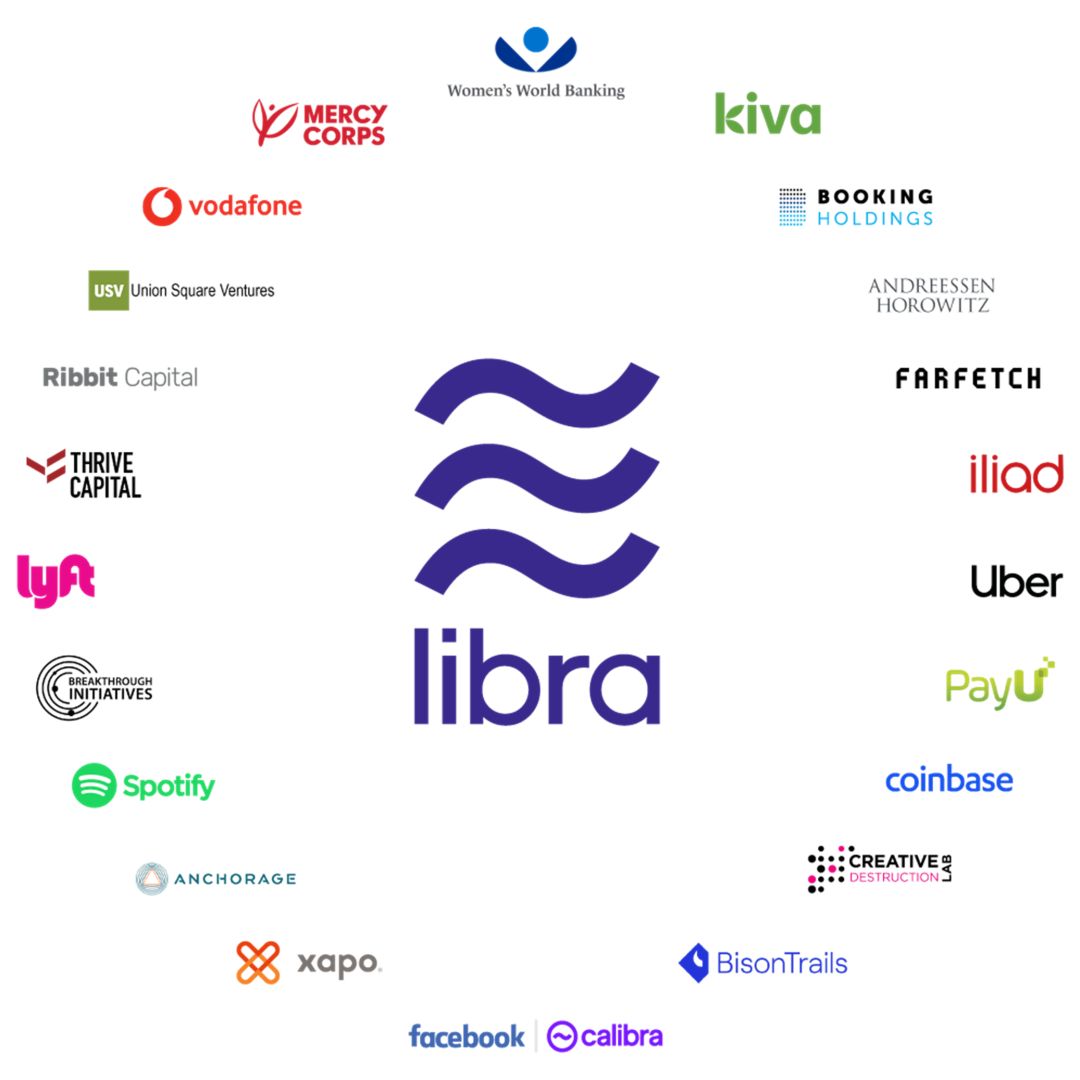Zuckerberg's moment: Why did Libra's founding members go out collectively?
Facebook’s ambition to change the world seems to be annihilated this time.
Among the many partners who said that they want to build a new world currency together, PayPal was the first to leave. Then, just as the discussion was good, Visa, Mastercard, Stripe, eBay, and Mercado Pago also left. Now, Libra's official website has not seen several member companies that have announced their withdrawal.
A spokesperson for Visa said that Visa's exit was determined by a number of factors, including the ability to meet Libra's regulatory expectations.
An eBay spokesperson said that eBay's exit is to focus on providing customers with a payment experience managed by them, but eBay still highly recognizes Libra's project vision.
- QKL123 market analysis | Bitcoin halved 200 days, Sino-US trade relations eased (1012)
- Avalanche (Avalanche) token free access guide, ETH holders are blessed
- Chen Chun, an academician of the Chinese Academy of Engineering: Data collaboration technology under the chain is an important direction for the development of the alliance chain
Stripe's spokesperson did not mention the specific reasons for withdrawing from the Libra project. He only said that he would pay close attention to the progress of the project and will maintain an open attitude of continuing cooperation with the Libra Association in the future.
A Mastercard spokesperson said that Mastercard will focus on the company's existing strategy after exiting, but will continue to focus on Libra's efforts.
In response, Facebook responded that although the composition of the members of the association may change over time, Libra's approach to project governance, technological advances, and the openness of the project itself ensure that Libra remains fairly flexible in payment network development. select.

Source: Libra's official website
Most of the departing partners are among the world's top payment giants, but after these companies have announced their withdrawal from Facebook's ambitious plans, the prospects for Libra projects that have been subject to regulatory scrutiny are even more worrying, presumably Zuckerberg, Marku Sis and others will feel very embarrassed at this time.
At present, the only remaining partner of the Libra project in the payment field is PayU. Will it also withdraw from Libra? The Dutch-based company has not yet expressed its position on this. However, the day after the release of the Libra project white paper, PayU posted a notice on its official website explaining why it was added to the Libra Association. It believes that the Libra project is in line with its vision of deep-growing high-growth markets and has collaborated with other large companies with many user bases, so investing in Libra as an innovative project is worthwhile for PayU.
But the logic of the business world is not as simple as PayU envisions, and the world's monetary and financial order will not change easily because of Facebook's blood.
It may seem rushed to announce the departure of five companies in a short period of time, but the node on October 11 is actually quite important, because on October 14th, all founding members of the Libra Association will gather in Geneva, Switzerland and hold the first place. Libra Council meeting. The forthcoming conference will determine what role each partner will play in promoting Libra's future development, what obligations it will assume, and other governance issues that are not yet listed in the white paper.
If Libra's first board meeting goes smoothly, then the members will solemnly sign the new agreement after the meeting. The signature itself means a commitment to the project, and the promise is never easy to make, especially For companies that have a huge influence in the world, any commitment needs to be carefully considered.
Moreover, for the payment companies in the founding members of the Libra Association, the opinions of the regulators cannot be ignored, especially the US regulatory authorities. However, according to the current situation, the US Congress has put a big question mark on Facebook's plan. The hearing is also held one after another. On October 23, Zuckerberg will once again accept the US Congress' inquiries about the Libra project. .
"Thirty-six counts go up", obviously the best time to not make any promises is before signing any agreement. So what is the root cause of several payment companies to leave? Obviously, in addition to eBay, payment companies that have announced their withdrawal from the Libra project need to meet specific regulatory requirements in dealing with criminal activities such as fraud and money laundering, and the Libra project they participate in seems to be difficult for regulators to believe that they can meet these requirements. In the eyes of a significant number of US government officials, any commitment to financial security, such as Facebook, which has had a taint experience in data privacy protection, appears to be convincing.
It is reported that in a letter sent to the CEOs of Visa, Mastercard and Stripe, US Senators Brian Schatz and Sherrod Brown warned that the Libra project has potentially huge risks, including facilitating terrorist financing and disrupting the global financial system. Stable, if these companies continue to participate in the Libra project will face more stringent supervision by financial regulators, which is the result of several large payment companies are not willing to see.
In the view of several payment companies, Libra, which relies on blockchain technology, is only as effective as an independent monetary system, but if it is to overlap with traditional banking and payment services (with the traditional financial world) Intersection) faces many problems, such as not meeting anti-money laundering requirements or improper handling of customer identification.
In the original vision, several of the founding members of Libra's founding companies were hoping to help solve project compliance issues, while rapidly expanding Libra with the mature payment systems that these payment companies have built around the world. The coverage and influence of this “world currency”. But after the "Great Escape" on October 11, Facebook is afraid that it will solve these problems alone.
The Libra Association's current 22 member companies include a payment company, two communications operators, four blockchain companies, five investment institutions, four non-profit organizations and academic institutions, and six companies including Facebook. User-based internet company. For these companies, convincing governments around the world to accept Libra will still be a very difficult task.
Although it is not possible to recognize the Libra project as a result of the departure of several payment companies, the road ahead is long and Libra's future has added a lot of uncertainty.
Text | Rainforest Sources | 01Binary
We will continue to update Blocking; if you have any questions or suggestions, please contact us!
Was this article helpful?
93 out of 132 found this helpful
Related articles
- Facebook is again "retired"! The Libra Association’s six payment industry members now have only one
- Marcus responded to Libra members' exit door, and Nick Szabo said he did not learn from the lessons of the Bitcoin pioneers.
- DevCon sees the fourth day: Chainlink pushes the new currency predictor; OpenLibra is beaten
- The US presidential campaign also sends money? Chinese candidate Yang Anze campaign token MATH is about to be released
- Blockchain data monthly report | After the waterfall, the bull market belief is still firm?
- Close to the line still can not escape the SEC's lawsuit, what exactly did Telegram do wrong?
- In addition to the Bitcoin Advantage Index (BDI), what should we focus on?






